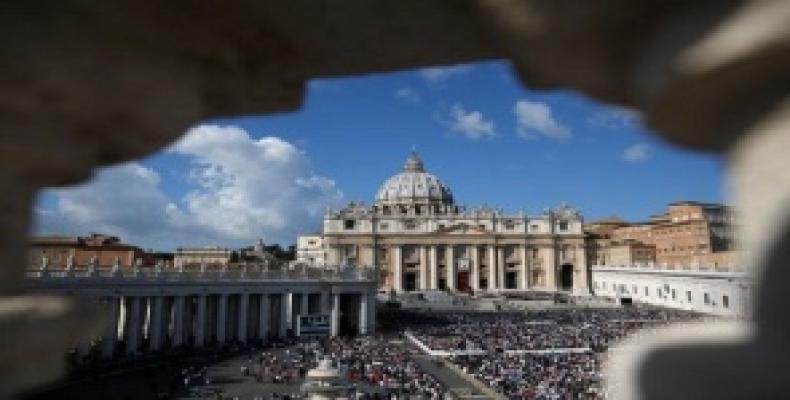Vatican City, October 27 (RHC)-- The Vatican and Argentina will soon release archives from the country's 1976-83 "Dirty War," when a military dictatorship killed as many as 30,000 people in a crackdown on left-wing opponents. Officials said the archives contain nearly 3,000 letters between the Roman Catholic Church and relatives of the dictatorship's victims. Human rights groups have accused Catholic officials of covering up abuses by the junta when it was in power.
The declassification was ordered by Pope Francis, a former Buenos Aires archbishop, a joint statement from the Vatican and Argentina's Church hierarchy said. The archives will be made available exclusively to relatives of victims, or victims still surviving.
The Argentinean Church's reputation was tarnished by links between some high-ranking clergymen and the military rulers. Critics said that Francis did not do enough for priests who challenged the dictatorship when he was the leader of the Jesuits in Argentina.
Survivors of the crackdown said one of the military rulers' tactics was so-called "death flights," in which political opponents were tossed into aircraft, stripped and then thrown alive into a river or the Atlantic Ocean to drown.
This followed the 2002 declassification of more than 4,000 U.S. State Department cables and other archives from the dictatorship, which the U.S. government initially supported.
Vatican and Argentina to Release 'Dirty War' Archives Soon

Articles en relation
Commentaires
Laissez un commentaire
Tous les champs sont requisPlus de visites
- Lula rejette le blocus de Cuba au sommet de la Celac et met en garde contre l'ingérence
- Le gouvernement guatémaltèque est appelé à rejeter les positions extrêmes interventionnistes des États-Unis à l'égard de Cuba
- Le président Díaz-Canel rentre à Cuba après avoir participé au sommet de la CELAC au Honduras (+Photo)
- Le président de la Bolivie confirme sa proposition d’actions continentales face à la situation actuelle
- La planète ne dépend pas de Trump

